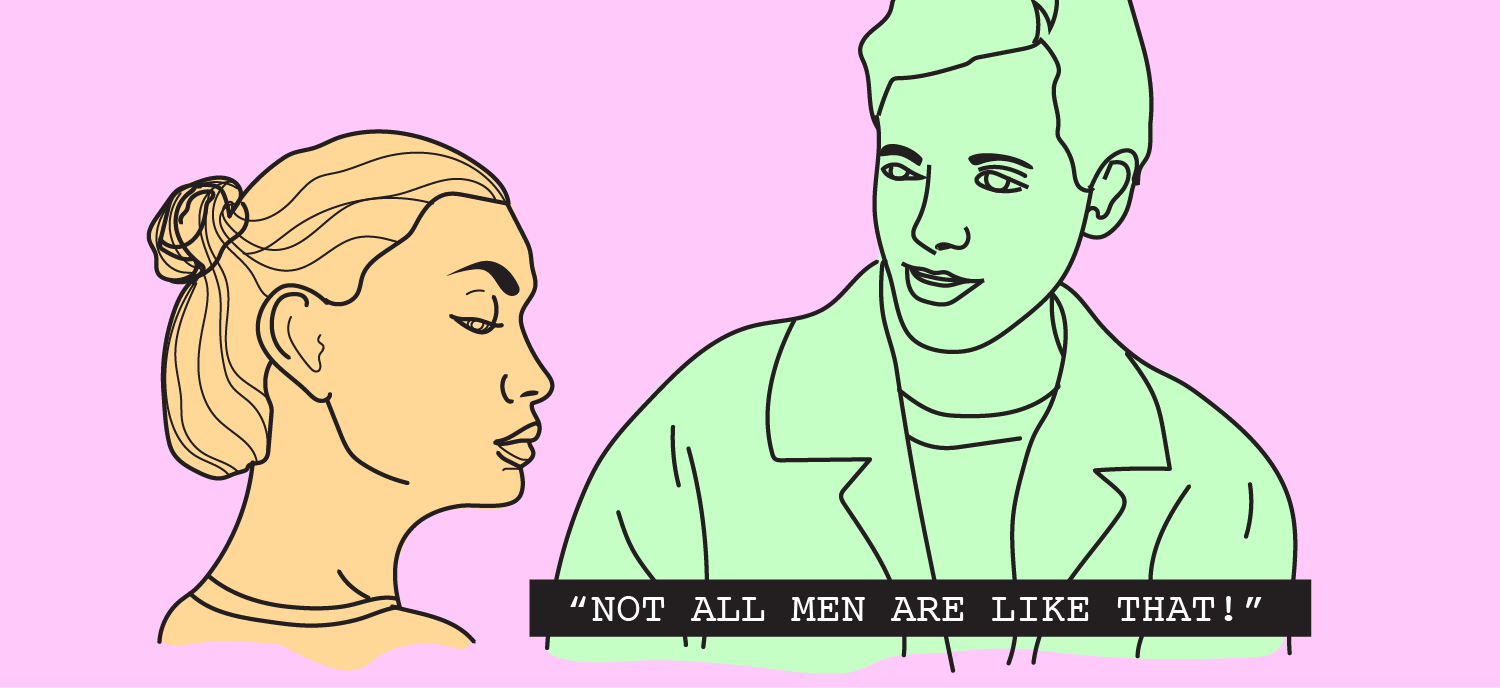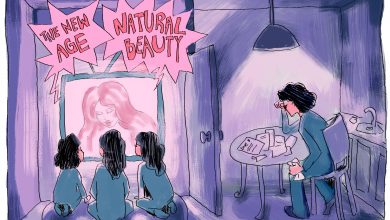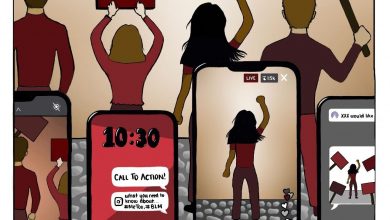Not About You: Why #NotAllMen is a Problem

Design by Sara Haas.
A male friend and I stood alone in an elevator that had been plastered with handmade anti-elevator harassment fliers. He asked me what I thought of the fliers, and I spoke approvingly of them, saying that they sparked necessary conversations about personal safety and sexual harassment in enclosed spaces. Laughingly, he replied, “Yeah, it needed to be said, but it kinda makes me feel bad for having a penis.”
And just like that, our conversation about harassment in elevators turned into a conversation about his identity crisis.
(And his false notion that all men have penises.)
This is a common aspect of conversations about sexism. Inevitably, the man in the conversation will lament the fact that he is lumped in with all of the other men who mistreat women, that he is being partially held accountable for something he would never do. He’s not wrong–there are many men who respect women and treat them accordingly. Unfortunately, that respect often falls short when it comes to listening to a woman’s experiences with sexism. The priority for such men becomes not listening and offering support, but cleanly removing their own images from the rubble of the collective male reputation.
This “nice guy” narrative has shown up in a big way on Twitter. Since 2013, #NotAllMen has been a common response to tweets about the ways women are mistreated by men. This irritating squeak on the door hinge of feminist discourse quickly became memeified, with members of the feminist community both seriously and humorously railing against the ultimately irrelevant yet highly visible argument.
Besides being a distraction from the necessary discussion of sexism, #NotAllMen overlooks the very nature of sexism. Acts of unfairness, harassment, and abuse are extreme manifestations of attitudes that are ingrained in the structure of most cultures. We are all, consciously or subconsciously, socialized to view women as inferior. It therefore takes effort, awareness, and humility to avoid perpetuating that view. And, let’s be frank: #AllMen benefit from a society where women are marginalized, whether they actively participate in this marginalization or not.
This can be an uncomfortable reality to face, one that the #NotAllMen camp seeks to mitigate by taking “an ideological position that rejects the idea that whole groups can be assigned blame for the actions of some of their members.” But discomfort is not always an inherently negative emotion. Moderate amounts of guilt motivate people to “treat partners well and avoid transgressions, minimizing inequities.” If used correctly, guilt can be a powerful tool in changing an individual, and possibly even collective, behaviors and attitudes.
Even so, women do not tell their stories of mistreatment and outright abuse to create male guilt; it is merely a consequence. Women may choose to talk as an attempt to receive justice, or as a way to gain personal empowerment, raise awareness, and show solidarity. #NotAllMen disrespects that process because it negates the feelings of women who have chosen to be vulnerable and reveal their wounds. #NotAllMen hurts because it reinforces the idea that no matter what she has been through, a woman’s story is subordinate to a man’s.
Ultimately a “nice guy” is known by his actions, not by his words. Nice guys prioritize empathy over their egos, becoming true allies in the fight against gender-based oppression.




